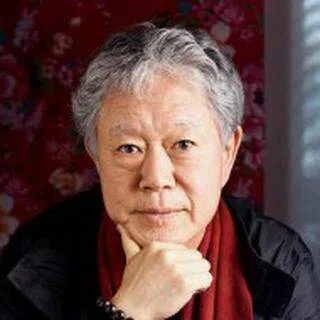Taiwanese art historian: Reading the stars, reading people
Discovering that horoscopes could be a discipline in itself, Taiwanese art historian Chiang Hsun takes back his earlier dismissal of them as a cheap thrill. Studying the stars and how they gather and scatter with the life choices one makes is a teaching in itself.
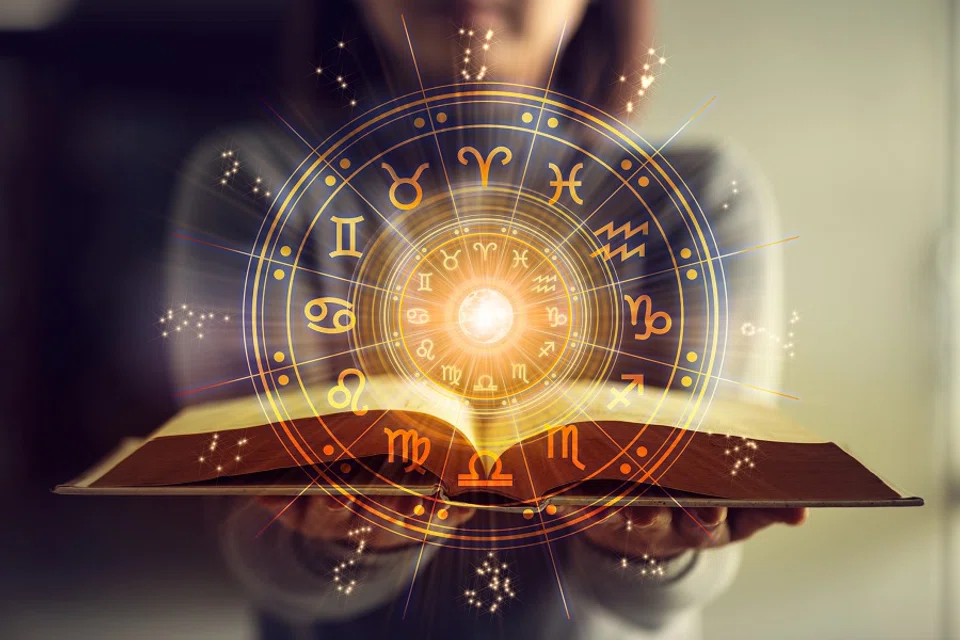
I first started taking an interest in horoscopes because of a student.
The student, surnamed Pan (潘), told me that he belonged to an indigenous tribe in the mountains of Nantou county (南投).
"You don't look like you do," I said, although he did have tanned skin. What I meant was rather abstract as well - perhaps it was because he was bespectacled, looked very well-mannered and wore a gold earring on his right earlobe.
He spoke really slowly, as if talking to himself: "During the Qing dynasty, 'foreigners' (番人 fanren) from Taiwan were called 'foreigners by the sea' (水边之番 shui bian zhi fan) and given the surname Pan (in chinese characters, 潘 pan is 番 fan with the 'water' radical 氵added).
"That was a long time ago. I have since been completely sinicised. My surname is the only trace of my indigenous roots - I belong to the foreigners who were granted the surname Pan," he added.
It would be a long time after this brief exchange that we would meet again.
The university I was at previously had a flexible system so I wasn't in the habit of taking attendance. Because my class was about creating things, I didn't insist that my students sit in class all day. I found that most of those who did lacked independent thinking and the ability to come up with their own creations. Such students went by the book, slavishly following the teacher's lead. They got into the habit of imitation, which made it even harder to create something new on their own.

But Pan didn't come for class for about a month and I started to worry. I asked his peers, "Have you seen him?"
"No," they said.
As I was the form teacher of the class, I felt that it was my duty to check on him.
I obtained the address of his accommodation outside campus. A few students who lived in the same neighbourhood had not seen him for some time either. One of his roommates said, "I saw him buying an enormous sack of cup noodles about a week ago..." He stretched out his hands, gesturing that the sack of noodles was around the size of half a human body.
I decided to head straight to visit him with two other students in tow.
We arrived at his place, knocking hard on the door. From what I remember, the ray of sunlight hitting the door was so bright that I could barely open my eyes.
A student asked, "Since there's no response after so long, are you worried that he has taken his life?"
Another student twinkled his nose and said, "I smell cup noodles..."
I continued knocking impatiently. My knocks got louder - perhaps I was really worried that something had happened, although I could smell the cup noodles too.
When the door suddenly opened, my hand knocking on the door almost hit Pan's face.
His tanned face was white as a sheet. As the strong sunlight hit his face, it seemed that his eyes needed some time to adjust to the light. He squinted and looked at me in confusion.

Perhaps I felt somewhat apologetic for intruding on a person's private space and felt the need to defend myself, "I haven't seen you for a long time. Even your next-door neighbour said he hasn't seen you come outside in seven days."
"Six days," he said. "I bought 40 cup noodles. I eat four everyday and have 16 left."
"Oh," I was so flabbergasted that I didn't know how to explain why I was there. "So everything's fine?"
He laughed and it seemed like colour returned to his face. He said, "Nothing's wrong! Do you want to come in and have a look?"
"Is that alright?" I asked.
He made way and invited me in with a smile. He even pinched the cheek of the classmate who smelled the cup noodles earlier.
Most of the off-campus small apartments for rent are pretty similar: there's usually just a bed, a desk and a bathroom. Although incredibly spartan, these units are immensely popular and the rent goes up every year.
I knew that some students lived off campus, but I rarely visited their apartments to get a sense of the situation.

"Ah," I was shocked by what I saw.
How should I describe it?
His entire room was filled with cup noodles. A student shrieked, "Wow, your room looks like an installation!"
Yes, "installation art", or an expression of creative ideas using various materials, was the art form that had just been introduced to Taiwan at the time and was wildly popular among young artists.
Wild days of subverting authority
The walls of Pan's tiny room were covered with the styrofoam bowls from his cup noodles. Stacked on top of each other, the bowls reached the ceiling. Even the small little window, the only one in his room, was covered with two layers of styrofoam bowls. Only a little sunlight peeked through the gaps between the bowls. I finally understood why Pan squinted when he opened the door earlier.
His eyes must have found it difficult to adapt to bright sunlight after they were cooped up in the dark for several days.
In that era known as the "wild 80s", the island subverted all order starting from the betrayal of art.
"You haven't been outside in six days?" one of the students asked curiously.
"Technically," he said as he lowered his head to think, "it's 21 days. I went downstairs to buy cup noodles six days ago."
"Are you planning to drop out of school?"
"No."
"But," I hesitated, not knowing if I should continue. "Many teachers could fail you, you know..."
He laughed. "You know..." he paused, lost in thought for a while as if he was trying to decide if it would be appropriate to say what he was about to say. "You know, you're a Capricorn. Capricornians often fail Librans."
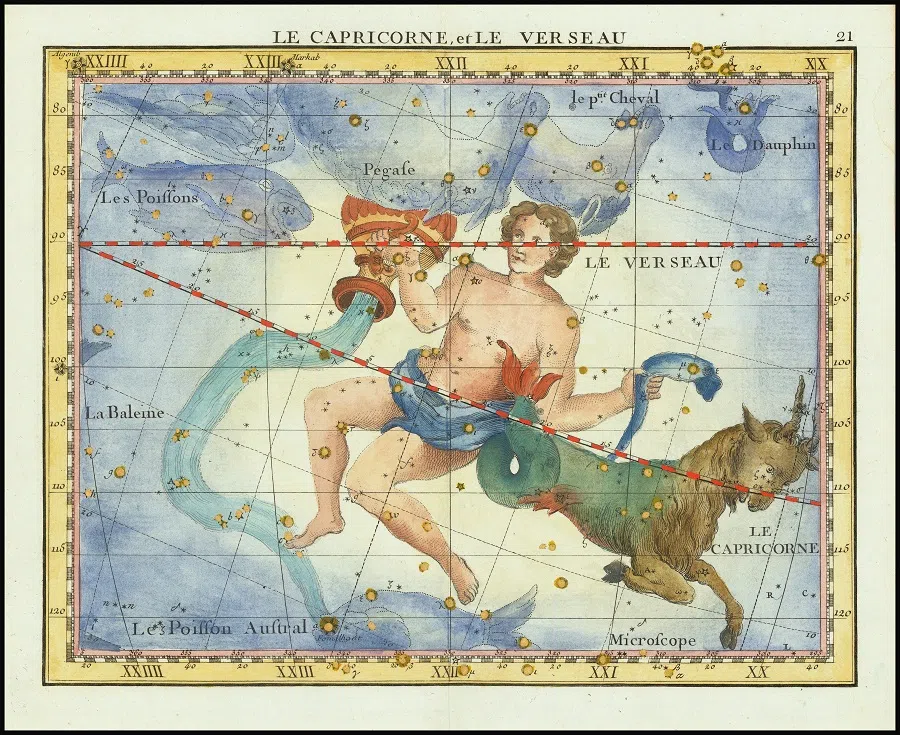
Through the layers of styrofoam bowls stacked to the ceiling and the faintest bit of light peeking in, I could see a mysterious smile on the faces of the two students who tagged along.
I guess they were waiting for a "teacher's" answer?
But what makes a "teacher" anyway?
At the national gallery, the artist, with his hands smeared with his own faeces, shook the hands of every guest at the opening ceremony. He heard the screams and curses, and gave a sinister grin. In that era known as the "wild 80s", the island subverted all order starting from the betrayal of art.
Subversion of political authority, subversion of class and gender, subversion of the rich and poor, and of beauty and ugliness... "Teachers" at colleges were considered mediocre and incompetent, using countless false theories to flatter the era that he couldn't even make sense of, all to keep his job at the school.
"My horoscope's like that?" I asked.
"You're a Capricorn..." he answered.
A whole new world of horoscopes
That was the first time I heard about horoscopes. I've always had the firm prejudice that horoscopes are no more than streetside magicians selling people a "lottery for the soul" such as daily horoscopes predictions. Scam-like messages are often seen in the media: "Sagittarians will have luck at the workplace"; "Virgos should work harder on their communication skills"; "Scorpions will have luck with windfall gains"... These messages only take advantage of one's vulnerabilities and abstract fantasies of happiness to create a fleeting moment of joy and beauty.
Modernites are just too worn out - they resort to such cheap means of grossly simplifying their fortunes and misfortunes.
"The lucky number and colour of each horoscope that the media talks about every day? Are you talking about that?"
Pan kept a quiet and gentle smile on his face. He looked up at me and asked, "Are you interested in knowing your astrolabe or reading your birth chart?"
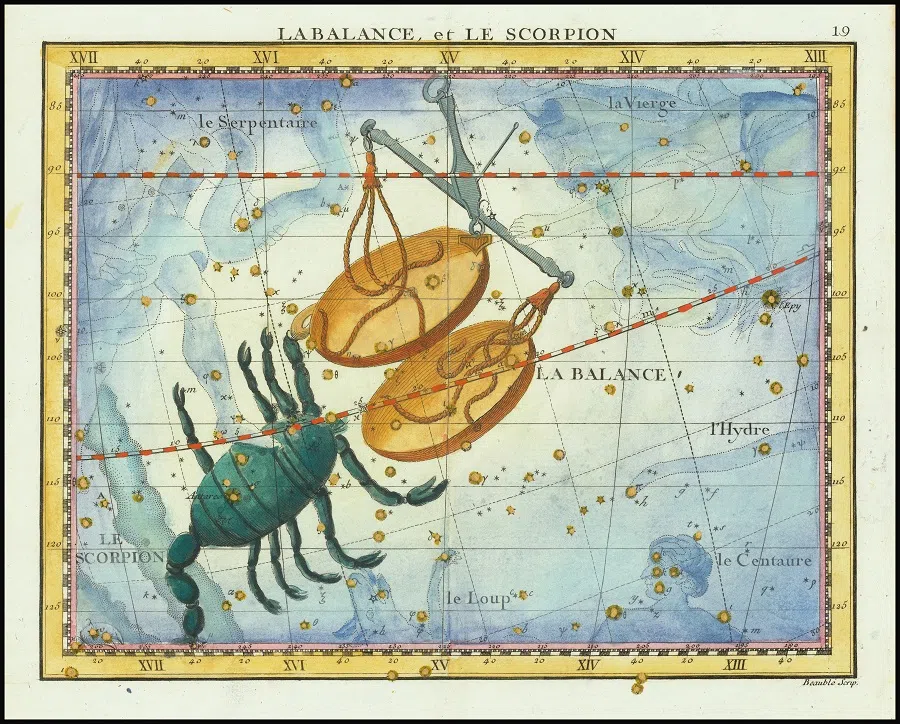
Looking around, he realised that he only had one chair. His table was also littered with cup noodles, both opened and unopened.
"Sorry... I only have one chair. Laoshi (老师, teacher), please sit."
I sat down and looked at the computer in front of me. He stood beside me while the two other students stood behind. As he tapped away on the computer, his face was very near mine and I caught a strong whiff of cup noodles. I felt like a criminal awaiting trial, held hostage by a cup-noodle-eating judge and waiting to be interrogated.
He asked me about the year, month, day and time of my birth. I gave him the details. Then came my place of birth.
He subconsciously typed "Taipei", pressed "enter", and a constellation-filled sky popped up on the screen.
"Sorry, I was not born in Taipei," I said.
"Ah, I got it wrong. Where then...?"
Youths of that era must think that everyone was born in Taipei. What if someone was born on Orchid Island? Would they have a different astrolabe (astronomical instrument)?
I told him about that land in the north where I was born, far away from the island.

A street fortune teller once stopped me in my tracks to tell me: "Sir, you have no affinity with your birthplace..."
I did not stop to listen and did not want to know why I had "no affinity" with my birthplace. But he was right - I left the place Pan entered into his computer a year after I was born.
It is as if all stars follow their own orbital paths in time and space.
Leaving a mark but without a trace
Having entered a crucial position into his computer, the dome of stars suddenly shifted several latitudes away from Taipei and towards the north.
Those densely packed dots looked like leaves on the branches in spring, flocks of birds in the sky, the gathering and scattering of fish in the streams, the specks of sand in the desert. When a great wind blows, the stars in the night sky gather and scatter too.
It is as if all stars follow their own orbital paths in time and space.
We are often unable to see those paths, just like we can't see the paths that we have walked. Boats leave no trace on water, just like we can't see our footprints on the paths we walked on. Or rather, the footprints may be jumbled up, such that when we look back, we can't recognise ours and those that were mixed into others in the chaos and confusion.
Pan rotated the complex astrolabe that appeared after all five elements were correctly entered. He briefly explained the chart, saying that I had a "Capricorn Sun, Virgo Rising and Sagittarius Moon".
It was more like he was reading the stars and constellations, and weaving them into his own ballad.
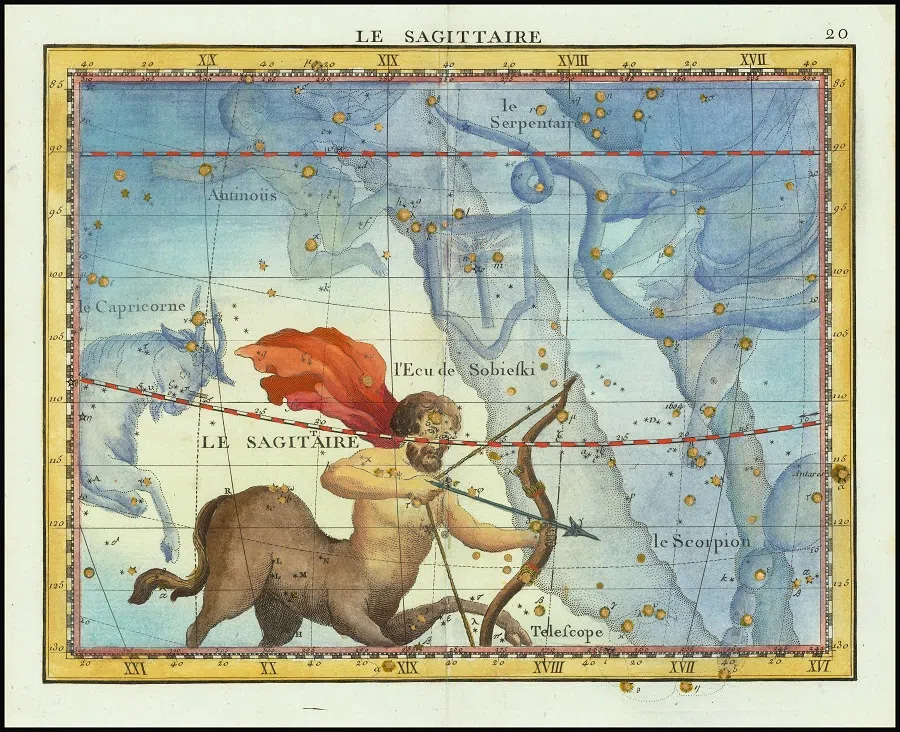
He slowly rotated the next page, and the sky dome shifted again, as if some fingers were dialling a secret code of the stars in the sky. "You have three 'palaces' (宫) in Sagittarius," said Pan.
Pan was not like the regular astrologer or fortune teller who were eager to tell their clients their destiny, simplifying it into a blessing or calamity. It was more like he was reading the stars and constellations, and weaving them into his own ballad.
"Venus in Aquarius..."
"Pluto is very far away and will perhaps tug at your thoughts in the dark moments."
Then, he downloaded the astrolabe and printed it for me - a whopping 31 pages, filled with latitude markers I was unfamiliar with, as well as graduations and explanations of various directions, times and angles. Yet, I was fixated on the magnificent image on the first page - a life was born in a certain year, in a certain month, on a certain day, at a certain time and in a certain place. A tiny red dot, a constellation far and near, big and small, rising and falling, bright and dark. They seemed to have different pulls and formed such a complex and unimaginable magnetic field force.
I held onto the 31 pages of paper and was filled with gratitude. Before I left, I pointed at the tiny red dot enveloped by a multitude of constellations on the first page and asked, "This is me?"
Pan nodded with a smile on his face.
At the door, I turned to him and said, "You're wrong about something. Capricornians won't fail Librans."

The important thing to note here is not that I did not fail Pan, a Libran, but that I became obsessed with horoscopes thereafter, finding all sorts of softwares on the internet to try and understand what Pan said about that faraway Pluto and Neptune. If spatial distance is only an indication of a mysterious, private and hidden desire or longing somewhere in my body, will these faraway magnetic fields have the same gravitational force as the Sun, Moon, Mars and Jupiter?
But I still stayed away from the daily horoscope guides in the media; those that said "Cancers must work on their interpersonal relationships" or "Pisces must stay wary of bad romantic luck". Every day, the media issues these horoscope-based warnings in prominent places. But these are even emptier than the political propositions of electoral candidates. What the hell are these astrolabes anyway?
"If one of the stars of Libra dies, will the horoscope meet with a sudden change?"
Mysteries of the universe
Pan did not return to class after all. I sometimes missed the way he turned cup noodles into an installation; the way he looked at the virtual night sky and basked in the distance, size, light and darkness, rising and falling of each and every star.
"But what if a star dies?" I found myself imagining what would happen as I stared at my screen. "If one of the stars of Libra dies, will the horoscope meet with a sudden change?"
I should've asked Pan, but I didn't. Perhaps he shouldn't be disturbed by anyone as he indulged in the world of stars and astrolabes. The wise men who observed the constellations in Mesopotamia (the land between the Tigris and Euphrates rivers) or Egypt, or later in Athens, Greece and who spoke the oracles of the sky in the temple - were they, in fact, wizards or philosophers?
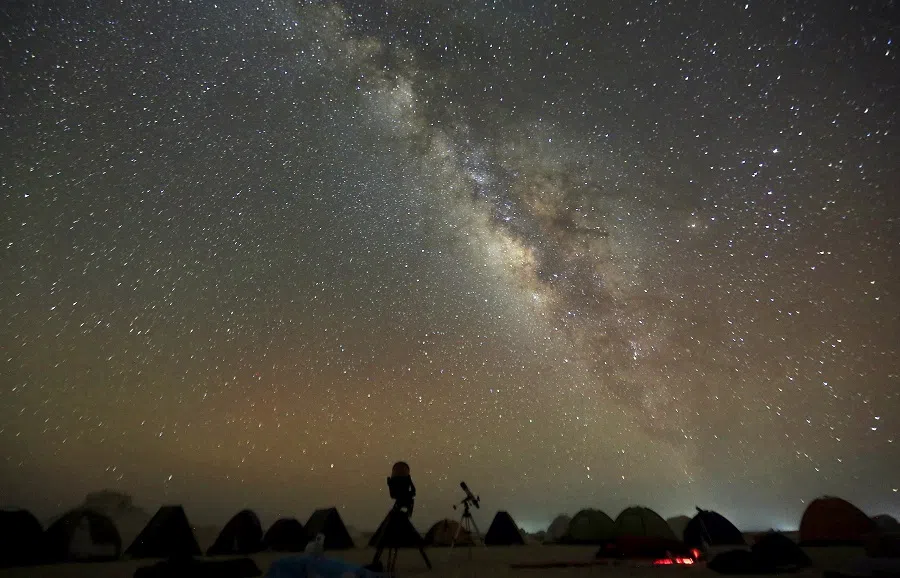
I saw the Capricorn's goat head and fish body on Mesopotamian stone tablets from thousands of years ago, and also saw Babylonian images of the twelve constellations that had been introduced to East Asia on wall murals in grottoes from the 12th century during the Yuan dynasty.
How did the longstanding history of astrology get simplified into such unrefined and coarse interpretations of human nature?
Pan will never know the impact he had on me. At boring three-hour-long school meetings, I used astrolabes to gauge the characters of various department heads. A head of department who lobbied colleagues to get elected as dean of the arts faculty had lips that looked exactly like that of a silver carp. When he spoke, he looked like a fish moving its gills when swimming as well. What will his astrolabe look like?
The chief instructor was reporting a recent case of a female student held hostage in Acacia Grove. He said that the grove was extremely dangerous at night as several female students had already met flashers there. The situation worsened, and a female was even tied to a tree this time.
The chief instructor asked everyone how the safety of the grove could be improved. And this was how democratic meetings often went, from saying what everyone wanted to say. Some said "make the place brighter", while others proposed "prohibiting female students from going out alone at night". One person suddenly said, "Why not just chop all the trees?" The head of the department of architecture furiously rebutted, "Shouldn't you catch the criminal? Why chop the trees!"
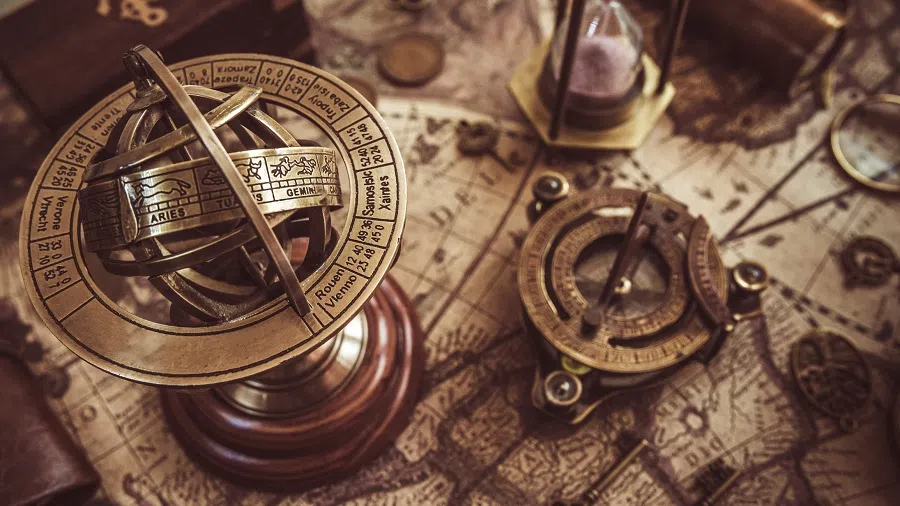
Pan will never know that I was trying to picture their astrolabes amid all of these. I guess the faraway and mysterious dark stars must have led them to their uncontrollable bursts of justice and compassion or unexplainable love or hatred.
As I walked past the architectural head of department after the meeting ended, I suddenly asked him in a low voice, "Are you a Sagittarius?"
He was a little shocked and confused as to whether my question was well-intentioned or not. After I walked away, I heard him say to himself, "That's so strange..."
Thank you, Libran Pan. The dull and mundane college suddenly seemed exceptionally lovely because of the astrolabe.
Should I talk more about everything Libra?
I moved away from the astrolabes on my computer to the faces of each individual in real life - their five facial features, body language, smile and how scary they looked when they showed their teeth. I pored over the transformations of a different type of astrolabe in humanity.
I guess I should tell the stories of a few Librans I am familiar with...
This article was first published in Chinese on United Daily News as "天秤座".
Related: Heavenly dishes in a little Shanghai restaurant | Taiwanese art historian: The joy of sharing food in old Taiwan | Taiwanese art historian: Reflecting on the indigenous culture of Orchid Island | Taiwanese art historian: Why we no longer find beauty in contemporary art | Qing dynasty 'eccentric' painter Zheng Banqiao: Art is commodity and beauty is physical
